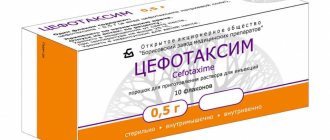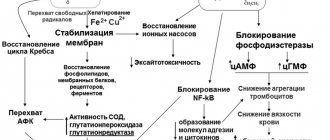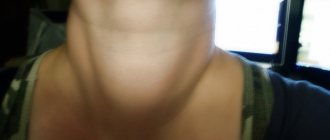"PREVENAR" - vaccination against pneumococcal infection
Pneumococcal polysaccharide vaccine, conjugated, adsorbed, thirteen-valent
Manufacturer: Wyatt Holdings Corporation, USA.
Protects against diseases: neumococcal infection.
Used: in children under 2 years of age. Revaccination at 4, 6 and 12-15 months
Included in the national vaccination calendar.
Description of the drug
The Prevenar vaccine is a drug for the prevention of pneumococcal infection in children starting from 2 months and adults.
Pneumococcal infection is one of the leading causes of child mortality; 800 thousand children under 2 years of age die each year worldwide due to pneumococcal infection. Pneumococcal infection causes a number of dangerous diseases, such as meningitis, pneumonia, bronchitis, otitis media, septicemia, sinusitis, and endocarditis. Often pneumococcal infection occurs in the form of a “regular” ARVI, which complicates diagnosis and increases the risk of developing life-threatening conditions. Vaccination against pneumococcal infection is aimed at preventing the disease, as well as reducing complications from pneumococcal infection and deaths. Indications for use
Prevention of diseases caused by Streptococus pneumoniae (serotypes 1, 3, 4, 5, 6A, 6B, 7F, 9V, 14, 18C, 19 A, 19F and 23F), including sepsis, meningitis, pneumonia, bacteremia and otitis.
The vaccine is intended for use from 2 months of age.
Possible side effects
In children 6 weeks to 17 years of age, the most common side effects are irritation, redness or swelling at the injection site, irritability, decreased appetite, decreased or increased sleep, and fever.
Serious but very rare side effects in infants and toddlers include pneumonia, bronchiolitis and gastroenteritis (inflammation of the stomach and small intestine) (0.9% of all vaccine recipients). A temporary pause in breathing after vaccination occurs in some babies born prematurely.
The high safety of vaccination has been confirmed by 230 million years of experience in administering Prevenar over the past 10 years. The vaccine is registered in 88 countries and is included in the national vaccination calendars of 30 countries.
Come get vaccinated at VIRILIS. A full range of vaccines for children and adults, family vaccinations - at a special price!
Vaccination scheme
- Children aged 2-6 months: individual immunization: 3 doses with an interval of at least 4 weeks between doses. The first dose can be administered from 2 months. Revaccination is carried out once at the age of 11-15 months. Mass immunization of children: 2 doses with an interval of at least 8 weeks between administrations. Revaccination is carried out once at the age of 11-15 months.
- Children aged 7-11 months: 2 doses of the drug with an interval of 1 month or more. Revaccination is carried out at the age of over 1 year.
- Children aged 12-23 months: 2 doses of the drug with an interval of at least 2 months. Revaccination is not carried out.
- Children over 2 years old: 1 dose of the drug. Revaccination is not carried out.
Possible reactions due to vaccination
In most cases, the Prevenar 13 vaccine is well tolerated, including in young patients and those at risk. You can buy Prevenar in Moscow, followed by an injection for the purpose of immunization. However, in some situations, negative reactions such as pain at the injection site, low-grade fever, malaise, and weakness are observed. In most cases, all these symptoms disappear on their own within a few days without the use of special medications. In extremely rare cases, anaphylactic shock is possible, so at the time of immunization a doctor must be present who can provide first aid with all the necessary equipment.
How is vaccination carried out?
Vaccination is carried out in a vaccination room, in compliance with all sanitary requirements. All drugs are certified. A certificate for the drug is provided upon request.
Without reminders, before vaccination, the medical worker must show the drug and the expiration date of the vaccine.
Only sterile and disposable instruments are used. The vaccination must be carried out using disposable medical gloves.
On the day of vaccination, the child is examined by a pediatrician and the temperature is measured. In the absence of contraindications, vaccination is carried out. Information about the vaccination performed is entered into the card, vaccination certificate, and detailed recommendations for caring for the child in the post-vaccination period are given.
Before vaccination, the doctor will answer all your questions. Be sure to bring information about previous vaccinations to your appointment!
Please note that vaccination of a child, Mantoux test, Diaskintest can only be carried out in the presence of parents or legal representatives of the child (guardians), or if the accompanying person has a NOTARIZED power of attorney to carry out the manipulation (indicating the drug planned for administration) . Otherwise, vaccination will be denied. We comply with the laws of the Russian Federation.
Only here!
Contraindications
Only a doctor can decide whether Prevenar is suitable for a child to be vaccinated
Prevenar vaccination is contraindicated if there is a history of an allergic reaction to any component of the vaccine, as well as in the following cases:
- Hypersensitivity reactions to previous administration of Prevenar drugs (including anaphylactic shock, severe generalized allergic reactions);
- Hypersensitivity to diphtheria toxoid and/or excipients;
- Acute infectious or non-infectious diseases, exacerbation of chronic diseases (vaccination is carried out after recovery or during remission).
- If an acute or exacerbation of a chronic disease occurs, the child receives a deferment until complete recovery or a period of remission. The pediatrician determines the required duration of delay from vaccinations, guided primarily by the risk of complications. In most cases, the delay is about 1 month. In case of meningococcal meningitis and other severe diseases of the nervous system, vaccinations are postponed for a longer period - up to six months from the onset of the disease.
- The main contraindications to vaccination, which provide grounds for medical withdrawal from vaccinations, are strong reactions and post-vaccination complications after the administration of the previous dose of the vaccine. A strong reaction is understood as an increase in body temperature above 40 °C with the occurrence of swelling and redness at the site of vaccine administration over 8 cm in diameter, severe allergic reactions, anaphylactic shock, the development of infectious diseases and damage to individual body systems.
Reviews of Prevenar
It should be noted that the Prevenar vaccine, reviews of which are found in large numbers on various forums, causes a lot of controversy and doubt. Of course, for many parents such prevention seems very attractive, but some of them are completely unsure of its effectiveness. Moreover, users often consider such vaccinations to be the cause of side effects and even mortality among children.
You can also find reviews from doctors about Prevenar online. Experts have very different opinions about this vaccine. While some describe positive results of vaccination, others point to certain facts, for example, that the drug does not contain serotypes 1 and 5, which mainly cause pneumococcal infections. In addition, it is reported that this vaccine is temporarily banned in some countries, such as the Netherlands.
Users often say that private clinics persuade them to undergo vaccination. At the same time, there are sometimes reports of the development of side effects in the form of increased body temperature. Basically, reviews of Prevenar 13 contain information that vaccination is successful, without the development of undesirable manifestations. Parents say that they strictly followed all the doctors’ recommendations and always maintained the established interval between vaccinations. After this, children get sick less, and they calmly attend kindergarten and other public places.
special instructions
The Prevenar vaccine is not used in adult patients.
It is recommended to delay administration if there is an acute illness accompanied by both moderate and severe hyperthermia. To avoid the development of any reactions, after vaccination the baby must be under the supervision of a specialist for 30 minutes. The rest of the time, while at home, parents should monitor the general condition of the child.
It has been established that the benefits of vaccination for this group of patients are the highest, so it should not be abandoned or postponed. However, it must be remembered that Prevenar does not protect against Streptococcus pneumoniae serotypes that are not present in its composition and against microorganisms that cause other invasive diseases.
Vaccination with Prevenar is not prescribed for children suffering from thrombocytopenia and other disorders associated with blood clotting. Such patients are not prescribed intramuscular injections. The exception is when the potential benefit of vaccination significantly outweighs the risk involved in administering the vaccine.
The presence of immunoreactivity disorders due to immunosuppressive treatment for HIV infection and so on may reduce the formation of antibodies in response to vaccination. In general, the decision to vaccinate children belonging to various high-risk groups is recommended to be made individually.
Prevenar is produced in a ready-to-use syringe, so its contents are not recommended to be placed in another container or mixed with any medications.
Immunological effectiveness
The use of the vaccine for children from 2 months allows the formation of a protective immune response after primary vaccination and revaccination. The introduction of 3 doses of primary vaccination, and then subsequent revaccination contributes to a significant increase in antibody levels. The drug induces the production of functional antibodies to the serotypes that make up the vaccine.
In young patients 2-5 years of age, antibodies to vaccine serotypes are formed after a single use. In this case, the immune response almost corresponds to the results of examination of children who received a series of primary immunizations .
In addition, the Prevenar 13 vaccine is administered to prevent infectious diseases, pneumonia and acute otitis media.
The comparative identity of these vaccines in terms of safety and immunogenicity profile makes it possible to switch from Prevenar to Prevenar 13 at almost any stage of vaccination. Moreover, 6 additional serotypes will only enhance protection against IPD.
Release form
Suspension for intramuscular administration, 0.5 ml/dose. 0.5 ml per 1 ml syringe made of transparent, colorless glass (type I).
1 syringe and 1 sterile needle in a plastic package sealed with plastic film. 1 plastic package together with instructions for use is placed in a cardboard box with or without first opening control. 5 syringes are placed in a plastic package sealed with plastic film. 2 plastic packages and 10 sterile needles along with instructions for use are placed in a cardboard box with or without tampering.
Pharmacodynamics and pharmacokinetics
Vaccines for the prevention of pneumococcal infections contain active substances, which are pneumococcal polysaccharides, obtained from the gram-positive bacteria Streptococcus pneumoniae, conjugated to the diphtheria carrier protein CRM197, and adsorbed on aluminum phosphate .
When the drug is administered, the production of antibodies to the capsular polysaccharides of Streptococcus pneumoniae of several serotypes begins, which allows for specific protection of the human body from the infections that they cause.
Analogs
Level 4 ATX code matches:
Pneumo 23
The main analogues of this drug are: Vaccine for the prevention of hepatitis B and Pneumo 23.
Prevenar 13 or Pneumo 23 - which is better?
Many parents express a desire to vaccinate their child against pneumococcal infections , but do not know which vaccine to choose: Prevenar 13 or Pneumo 23 ? Experts recommend choosing Prevenar 13, although it has a smaller number of serotypes, but since this drug better builds immunity, its effectiveness is higher.
PNEUMO 23 / PNEUMO 23
(Polyvalent pneumococcal vaccine for the prevention of pneumococcal disease)
Manufacturer: Sanofi Pasteur S.A. (France)
Composition: each dose of the Pneumo 23 vaccine contains purified polysaccharides of pneumococci of 23 serotypes.
Release form: injection solution: one dose of vaccine in 0.5 ml syringes
Indicated for use: from 2 years of age for the prevention of pneumococcal infection, including diseases such as pneumonia, bronchitis, otitis media, meningitis, sepsis; forms specific immunity to various serological types of 23 bacteria Streptococcus pneumoniae.
Particularly indicated for: - patients suffering from congenital or acquired immune disorders, chronic diseases, especially the respiratory and cardiovascular systems, respiratory systems, diabetes mellitus, liver cirrhosis, chronic renal failure, Hodgkin's disease or who have undergone splenectomy (removal of the spleen) - (level mortality in this group reaches 50%); – frequently ill children (especially under 5 years of age); – children living in large groups (for example, in an orphanage or orphanages); – persons over the age of 65 years (mortality from pneumococcal pneumonia reaches more than 40% at this age) – patients with sickle cell anemia – HIV-infected “organized” patients (living in nursing homes, long-term care facilities, prisons).
Vaccination schedule: once from 2 years of age. It is recommended to be vaccinated at the same time as the flu shot. This provides comprehensive protection against two causes of pneumonia, which are (together) the 5th leading cause of death among older people. During your stay in a medical institution: in preparation for operations (removal of the spleen, organ transplantation), treatment for predisposing pathologies - once. Revaccination is carried out once, no earlier than 3 years after the 1st vaccination, with the exception of persons from a high-risk group or patients on immunosuppressive therapy.
Repeated vaccination is recommended for: – adults from high-risk groups (for example, with asplenia) who were vaccinated 5 years ago; – those who have a rapid decrease in pneumococcal antibody titers (patients with nephrotic syndrome, renal failure, those who have undergone organ transplantation) – after 3-5 years, children over 10 years old with nephrotic syndrome, asplenia and sickle cell anemia.
Contraindications: – hypersensitivity, severe allergic reaction to the previous administration of the vaccine; – anti-pneumococcal vaccination less than 3 years before the intended vaccination (except for special indications); – pregnancy (I-II trimester) except in cases where vaccination is indicated; – hyperthermia, acute infectious and non-infectious diseases or exacerbation of chronic diseases (in these cases, vaccination should be postponed).
Advantages: – Pneumo23 is the only vaccine registered in Russia for the specific prevention of pneumococcal infection; – it protects against the 23 most common types of pneumococci and the diseases they cause, including pneumonia (pneumonia), bronchitis, otitis media, meningitis, sepsis; – duration of protection up to 5 years after a single vaccination with the Pneumo 23 vaccine; – the effectiveness of the vaccine, proven by Russian experience – a 6-fold reduction in the number of cases of pneumonia in risk groups; – contains most of the serotypes circulating in Europe that are resistant to penicillin; – available in convenient disposable individual syringe doses; – it is possible to effectively combine vaccination with the Pneumo 23 vaccine with vaccination against influenza for the comprehensive prevention of influenza and its complications; – Pneumo 23 vaccination can be carried out during breastfeeding; – only one dose of the vaccine is needed for effective protection.
Application experience: According to foreign studies, the Pneumo 23 vaccine is effective against 90% of pneumococci that are insensitive to penicillin and 96% of pneumococci that cause disease. The Pneumo23 vaccine is registered in many European countries. When registering the vaccine in Russia, tests were carried out, during which the high preventive effectiveness of the Pneumo 23 vaccine in risk groups was demonstrated: a reduction in the incidence of acute respiratory diseases by 2 times, bronchitis by 12 times and pneumonia by 6 times compared to those who were not vaccinated. The high safety of the Pneumo23 vaccine was also confirmed: local reactions were recorded (hardening, redness at the injection site), which were observed in only 5% of those vaccinated. All adverse reactions resolved without treatment within 24-48 hours from the moment of their onset. General reactions (fever, malaise, etc.) are generally not typical for this vaccine and occur in no more than 2% of immunized individuals.
Indications for use
This vaccine is intended for the prevention of diseases caused by Streptococcus pneumoniae serotypes included in the drug, as well as:
- sepsis;
- meningitis;
- pneumonia;
- bacteremia and acute otitis media.
Interaction
There are no data on the interchangeability of Prevenar® 13 with other pneumococcal conjugate vaccines. When immunized simultaneously with Prevenar® 13 and other vaccines, injections are made into different parts of the body.
Children 2 months - 5 years
Prevenar® 13 is combined with any other vaccines included in the immunization schedule for children in the first years of life, with the exception of BCG. Simultaneous administration of the Prevenar® 13 vaccine with any of the following antigens included in both monovalent and combination vaccines - diphtheria, tetanus, acellular or whole-cell pertussis, Haemophilus influenzae (type b), polio, hepatitis A, hepatitis B, measles, mumps , rubella, chickenpox and rotavirus infection - does not affect the immunogenicity of these vaccines. Due to the higher risk of developing febrile reactions in children with seizure disorders, incl. with a history of febrile convulsions, and also receiving Prevenar® 13 vaccine simultaneously with whole-cell pertussis vaccines, symptomatic administration of antipyretics is recommended. When the Prevenar® 13 and Infanrix-hexa vaccines were used together, the frequency of febrile reactions coincided with that for the combined use of the Prevenar® (PCV7) and Infanrix-hexa vaccines. An increased incidence of reported seizures (with and without fever) and hypotensive-hyporesponsive episodes was observed with the combined use of Prevenar® 13 and Infanrix-hexa vaccines. Antipyretic medications should be initiated in accordance with local treatment guidelines for children with seizure disorders or a history of febrile seizures and in all children receiving Prevenar 13 concomitantly with vaccines containing whole cell pertussis.
Prevenar® 13 can be used together with meningococcal polysaccharide vaccine serotypes A, C, W and Y, conjugated to tetanus toxoid, in children aged 12–23 months. Post-marketing data from a post-marketing study of prophylactic antipyretics on the immune response to Prevenar® 13 vaccine suggest that prophylactic administration of acetaminophen (paracetamol) may reduce the immune response to the primary vaccination series with Prevenar® 13 vaccine. Immune response to booster vaccination with Prevenar® 13 vaccine in 12 months with prophylactic use of paracetamol does not change. The clinical significance of these data is unknown.
Children and adolescents 6–17 years old
There are no data on the use of Prevenar® 13 simultaneously with the vaccine against human papillomavirus infection, meningococcal conjugate vaccine, tetanus, diphtheria and pertussis vaccine, and tick-borne encephalitis.
Persons 18–49 years old
There are no data on the simultaneous use of Prevenar 13 with other vaccines.
Persons 50 years and older
Prevenar® 13 can be used in conjunction with trivalent or quadrivalent inactivated seasonal influenza vaccine (DVT or IV). When Prevenar® 13 and DVT were used in combination, immune responses to DVT were similar to those obtained with DVT alone, and immune responses to Prevenar 13 were lower than with Prevenar 13 alone. The clinical significance of this finding is unknown. The incidence of local reactions did not increase with simultaneous administration of the Prevenar® 13 vaccine with inactivated influenza vaccine, while the incidence of general reactions (headache, chills, rash, loss of appetite, joint and muscle pain) increased with simultaneous immunization. Concomitant use with other vaccines has not been studied.



